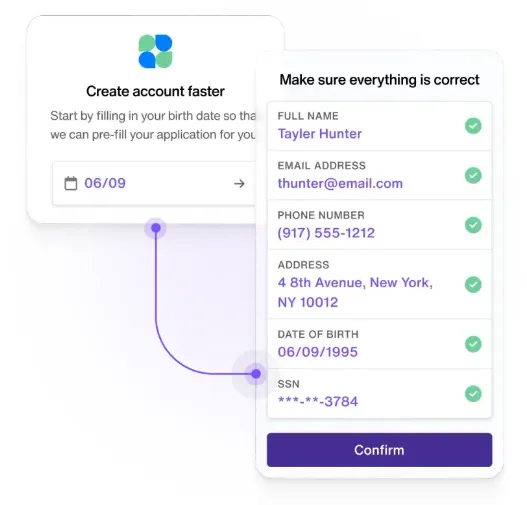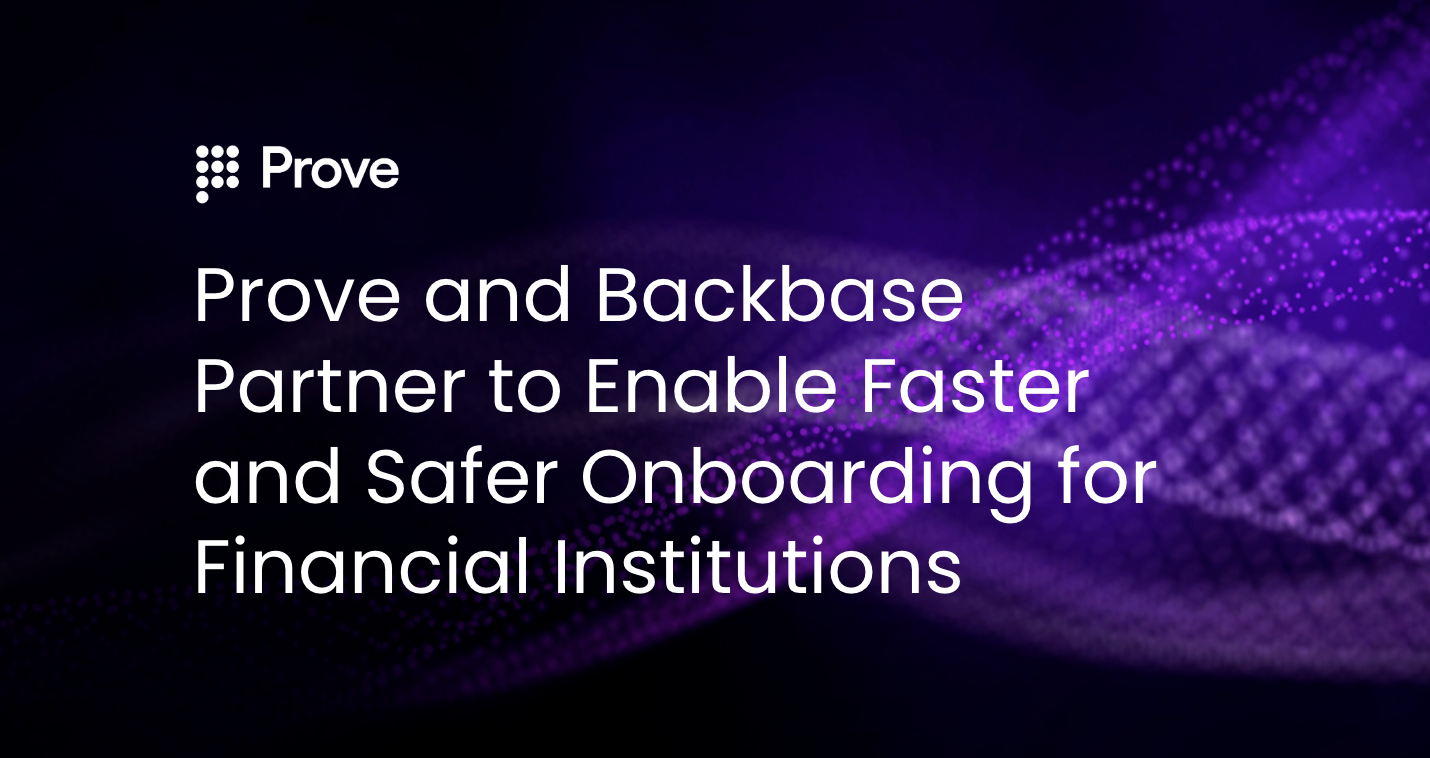Why Identity Verification Matters for Developers


The digital age has transformed online interactions and transactions from a novelty to a necessity. This makes establishing trust and verifying identities more critical than ever. Developers need to prioritize identity verification and bake it into their applications from the start. Identity verification is essential for building a secure and trustworthy development ecosystem. It protects developers, users, and the platforms they interact with. Let’s dive into the reasons why:
Identity Verification: A Critical Defense Against Unauthorized Access
Identity verification ensures that users are who they say they are, and enables organizations to determine if they can be trusted. This is the foundation of a secure digital relationship and it protects both users and businesses from fraud and account takeovers.
Consider the complex threat landscape where malicious actors employ sophisticated techniques to compromise user accounts. Unauthorized access can lead to severe consequences, including the exfiltration of sensitive personal data and the execution of fraudulent transactions.
Identity verification serves as a critical line of defense in this environment. By implementing robust, multi-factor authentication (MFA) mechanisms, developers can significantly mitigate the risk of account takeover. These mechanisms may include:
- Biometric authentication: Leveraging unique physiological or behavioral traits for verification.
- One-time passwords (OTPs): Generating temporary, time-sensitive codes for access.
- Knowledge-based authentication (KBA): Employing challenging security questions with dynamic responses.
Furthermore, integrating risk-based authentication allows for adaptive security measures based on user behavior and contextual factors, further bolstering the protection of user data and privacy.
In essence, identity verification is a crucial component of a comprehensive security strategy, enabling developers to fortify their applications against unauthorized access and safeguard user accounts in the face of evolving cyber threats.
Identity verification helps protect user data by ensuring that only authorized individuals can access and modify it. This is particularly important for developers whose solutions handle sensitive personal information. By implementing robust verification measures, developers can comply with data privacy regulations and build trust with their users.
In collaborative development environments, identity verification ensures that all team members are who they claim to be. This prevents unauthorized access to shared code repositories, project management tools, and communication channels. It also helps establish accountability and track contributions accurately.
User Experience (UX): Striking the Right Balance
While rigorous identity verification is essential, it's important to acknowledge the potential for friction in the user experience. Excessively cumbersome or intrusive verification processes can lead to user frustration and abandonment.
Therefore, developers must strive to achieve an optimal balance between security and usability. This involves implementing verification methods that are both seamless and intuitive, minimizing disruption to the user journey while maintaining a high level of security.
The Prove Pre-Fill® solution simplifies UX by automatically filling in user data from verified sources, like name and address. This leads to faster onboarding and reduced friction for users while maintaining a high level of security.

Prove's Mobile Auth℠ solution offers a frictionless UX by leveraging phone-centric identity. This reduces reliance on traditional passwords and one-time passcodes (OTPs). By carefully choosing and integrating the right verification methods, developers can create a smooth onboarding experience without compromising security.
Compliance: Navigating the Legal Landscape
Beyond best practices, identity verification is often a non-negotiable legal requirement across numerous industries. Regulations such as Know Your Customer (KYC) and Anti-Money Laundering (AML) mandate that businesses verify the identities of their customers to mitigate fraud, money laundering, and other illicit activities.
However, adhering to these regulations while maintaining a smooth onboarding experience can be challenging. Traditional KYC processes often involve cumbersome manual reviews and lengthy verification procedures, leading to friction and user frustration.
The Prove Pre-Fill® solution provides a piece in this intricate puzzle. By leveraging the Prove Pre-Fill® solution alongside other technologies such as biometrics, document verification, and data analytics, businesses can automate and expedite the identity verification process while ensuring compliance with regulatory requirements.
This translates to:
- Accelerated onboarding: Reducing time-to-value for new customers.
- Enhanced security: Mitigating fraud and financial crime risks.
- Improved compliance: Providing assistance in meeting compliance obligations.
- Elevated user experience: Providing a seamless and efficient onboarding journey.
Prove empowers businesses to navigate the complex regulatory landscape while optimizing the user experience.
Prove offers a KYC add-on that compares the consumer’s PII against a group of AML lists (such as sanctions, warnings, PEP). This helps prevent working with people who pose risks to national or international security. This feature can also help with Customer Identification Programs (CIP).
Developers need to ensure their applications comply with these regulations. Failure to do so can lead to hefty fines and damaged reputation. By integrating identity verification, developers can help businesses meet their compliance obligations and avoid legal trouble.
Business Growth: Building Trust and Expanding Reach
Identity verification builds trust and fuels business growth. When users feel confident that their identities are secure, they are more likely to engage with the application.
It can also help businesses reach new markets and demographics. By offering secure and reliable verification methods, developers can attract and onboard users from diverse regions and backgrounds. Complying with international regulations and KYC/AML requirements opens doors to new markets and business opportunities.
Identity verification acts as a trust builder, assuring users and partners that developers are legitimate and reliable. This increased trust translates to a stronger reputation, attracting more clients and investors. By verifying identities, developers can also significantly reduce security risks, safeguarding their valuable work and protecting users from fraud and abuse.
This creates a safer and more trustworthy environment, leading to better user experiences and increased engagement. Identity verification can open doors to new markets and opportunities by meeting compliance requirements and enabling access to platforms that demand strong identity assurance.
Innovation: Unlocking New Possibilities
Identity verification isn't just about defense; it can also accelerate innovation. By establishing a trusted digital identity, developers can unlock new possibilities and create innovative features and services.
Working with trusted digital identities allows developers to offer innovative features such as secure online transactions, personalized experiences, and access to exclusive content.
For example, identity verification allows businesses to confirm a user's age without relying on easily faked IDs or credit cards. This creates new options for selling and delivering age-restricted goods and services online. By leveraging identity verification to innovate, businesses can gain a competitive edge.
Practical Considerations for Developers:
- Keep Data Secure: Handle user data with care and responsibility. Comply with data privacy regulations and be transparent with users about data collection practices.
- Stay Updated: Identity verification tools constantly evolve. Stay informed about new technologies, regulations, and best practices to ensure applications remain secure and compliant.
- Test Thoroughly: Rigorously test identity verification implementations to catch and address any weaknesses or usability issues.
- Educate Users: Clearly communicate the benefits of identity verification to users, explaining how it protects their accounts and data.
Embrace Identity Verification
Identity verification is quickly becoming a core component of modern software development. Think of it as the foundation for building apps that are secure, user-friendly, and compliant. By integrating identity verification, developers can build secure, user-friendly, and compliant applications. Embracing identity verification is essential for creating a safe and trustworthy online environment for everyone.
Visit our developer portal to see how easy it is to add identity verification today.
Photo by Barthelemy de Mazenod on Unsplash

Keep reading
 Read the article: Prove Launches Global Identity Graph to Redefine Digital Trust for 90% of Digital Consumers
Read the article: Prove Launches Global Identity Graph to Redefine Digital Trust for 90% of Digital ConsumersProve has launched its Global Identity Graph, a foundational platform that connects verified human identities to their digital tokens, redefining digital trust and enabling instant, frictionless, and secure engagement for over 90% of digital consumers worldwide.
 Read the article: Prove Partners with Hard Rock Bet to Deliver Elite Onboarding and Enhance Player Experience
Read the article: Prove Partners with Hard Rock Bet to Deliver Elite Onboarding and Enhance Player ExperienceProve and Hard Rock Bet partner to deliver elite player onboarding by using Prove Pre-Fill® to instantly verify identities, streamline signup, and enhance security in online gaming.
 Read the article: Prove and Backbase Partner to Enable Faster and Safer Onboarding for Financial Institutions
Read the article: Prove and Backbase Partner to Enable Faster and Safer Onboarding for Financial InstitutionsThe Prove Pre-Fill solution integrates with Backbase’s AI-powered Banking Platform to reduce fraud, streamline data entry, and improve digital account opening experiences.












